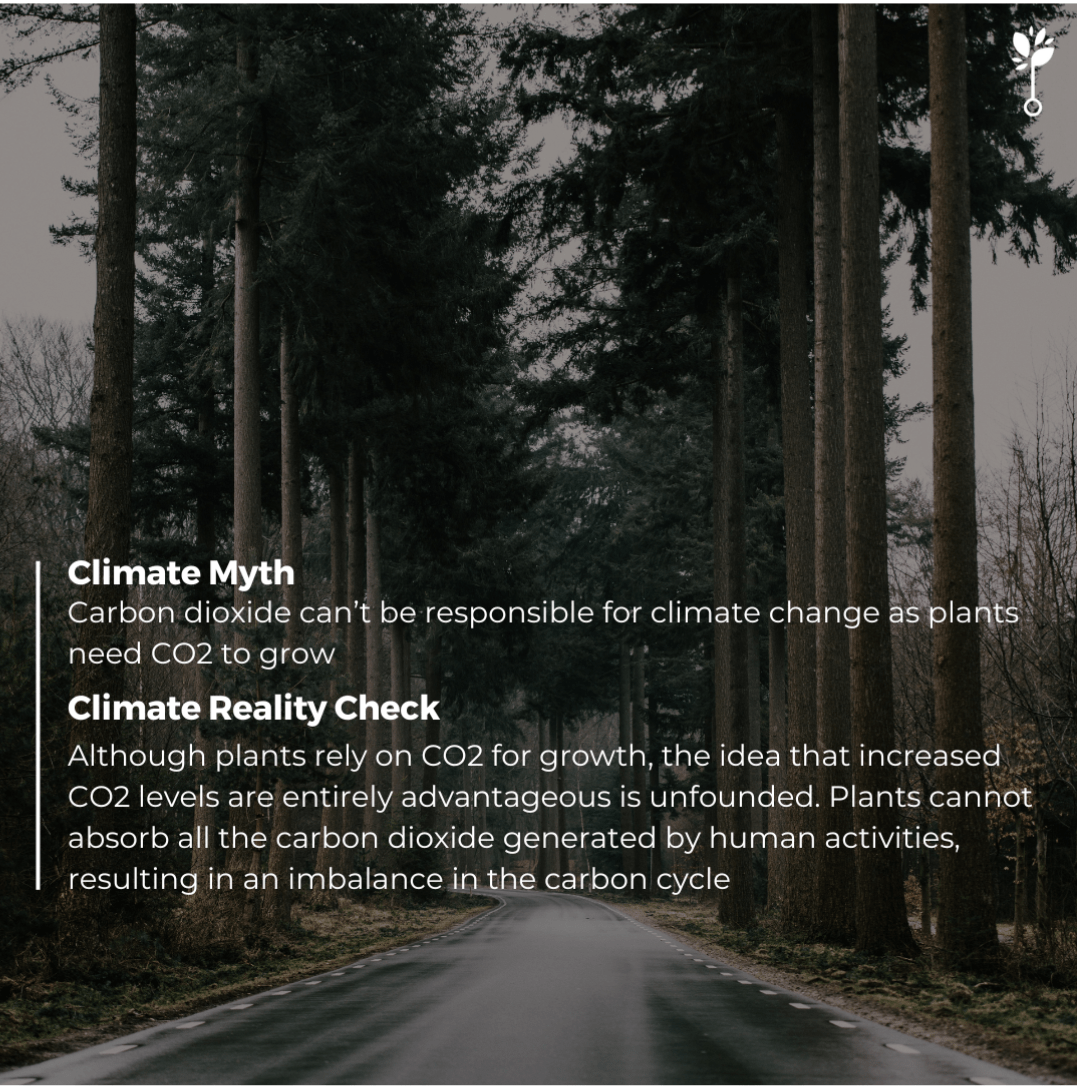03/05/2024
Debunking Climate myths: climate change
Social responsibility
Climate Myth: “Carbon dioxide can’t be responsible for climate change as plants need CO2 to grow”
Climate Reality Check: In summary, while increased carbon dioxide levels in the atmosphere do promote plant growth, it’s crucial not to underestimate the impact of climate change. Vegetation and soils are absorbing and storing carbon dioxide at an accelerated rate, known as the “land carbon sink.” Over the past five decades, this sink has expanded, absorbing a significant portion of human emissions. Recent research indicates that rising carbon dioxide concentrations are largely responsible for this growth, driving increased plant photosynthesis. This phenomenon, known as the “carbon dioxide fertilization effect,” results in heightened plant growth and an enhanced capacity to absorb carbon dioxide.
Preserving and restoring these ecosystems is crucial for maintaining their carbon storage capacity. However, despite the enhanced ability of landscapes to absorb carbon dioxide due to rising atmospheric levels, a substantial portion of human emissions (44%) remains in the atmosphere, contributing to ongoing climate challenges.
But does an increase in CO2 benefit plants?
Scientists have identified a fertilization effect of rising CO2 on agricultural plants, enhancing their growth potential. However, this effect varies among different crops, with certain exceptions like corn, which have unique CO2 absorption processes. While most crops, such as wheat, rice, and soybeans, benefit directly from higher CO2 levels, there are limitations to this advantage. As CO2 concentrations increase, the benefits of fertilization start to diminish, and other factors like temperature rise and moisture deficit begin to negatively impact crop yield. Additionally, rising CO2 levels can lead to reduced nutritional value in crops, exacerbating health issues globally. Despite claims by climate change skeptics that elevated CO2 levels benefit plant growth and food production, experts emphasize the need to consider the broader impacts of climate change on vegetation, which may outweigh any short-term benefits.
In conclusion, while plants do require CO2 for growth, the notion that more CO2 is universally beneficial is a myth. This is because plants cannot absorb 100% of the carbon dioxide produced by human activities, leading to an imbalance in the carbon cycle. Excess CO2 contributes to climate change and its associated negative impacts, highlighting the importance of managing carbon emissions to maintain a sustainable environment for plant growth and overall ecosystem health.
ESG Activator
Find out more how the TGS ESG Activator can help your firm



